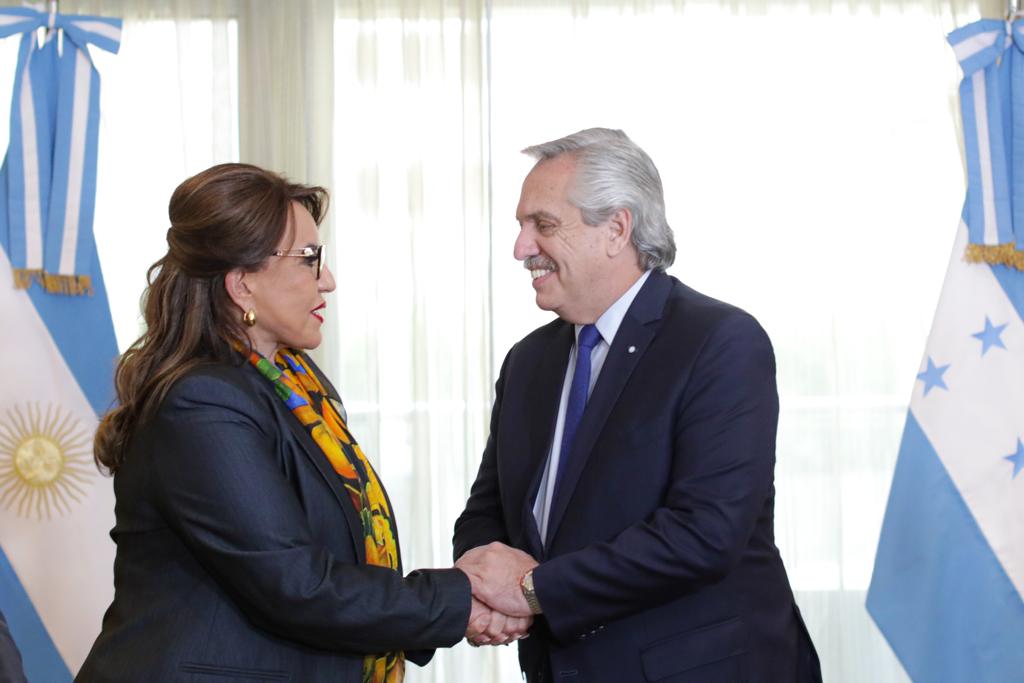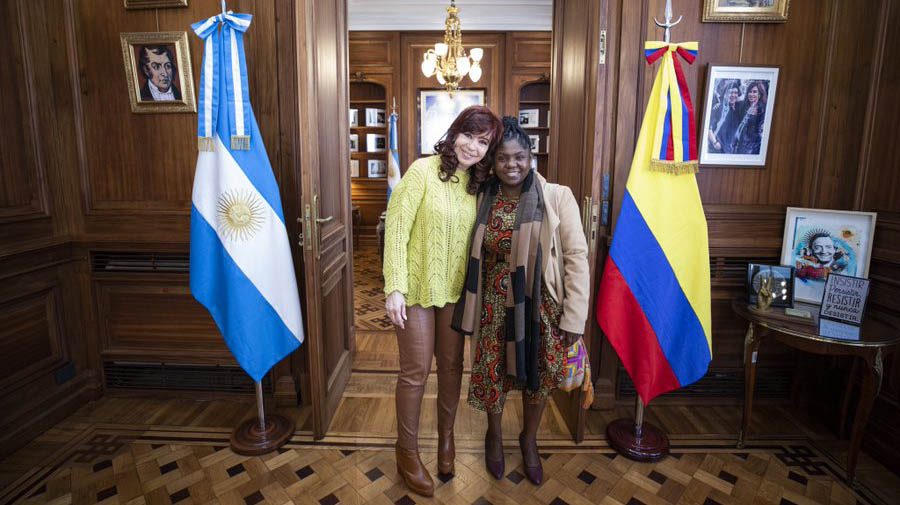
President Alberto Fernández held a meeting today with his counterpart from Honduras, Ximara Castro, in the framework of his visit to Colombia to attend tomorrow the inauguration of his peer Gustav Petro. As reported from the Casa Rosada, both leaders agreed that the Community of Latin American and Caribbean States (CELAC), led by the chief executive, must be a “strategic priority” for the strengthening of regional integration, “through political agreement, with a supportive and cooperative approach that include everyone.”
The meeting, which lasted almost an hour, took place this afternoon in Bogotá, and Alberto Fernández “confirmed his conviction that the bloc aims to articulately promote the interests of the countries of Latin America and the Caribbean”, communicated from the Presidency.
During the meeting, Castro and Fernández also expressed their desire to “advance the bilateral agenda and strengthen relations between our countries.” “For our country, Honduras is an important partner in the Central American region,” said the Argentine president, who was accompanied by the Minister of Foreign Affairs, International Trade and Worship, Santiago Cafiero.
The President highlighted the importance of “working on global issues such as pprotection of human rights and gender equality, among other issues”. He also took advantage of the occasion to thank Honduras for supporting the Argentine claim in the sovereignty dispute in Falklands and the resumption of dialogue with Britain.
They also exchanged experiences regarding the potential cooperation in energy, agrochemicals, fertilizers, agricultural machinery, professional services and post-harvest handling and technology transfer, they detailed in an official statement from the Government.
On behalf of Honduras, the private secretary of the Presidency, Héctor Manuel Zelaya, the Secretary of Foreign Affairs and International Cooperation, Enrique Reina, and the director of Social Policy, Warren Ochoa, participated in the meeting.
Later, at 22 (Argentina time), Alberto Fernández will be in a bilateral meeting with the president of Bolivia, Luis Arce. In the morning, the president had held a meeting with the Puebla Group, which was attended by the former president of Brazil, Dilma Rousseff; from Colombia, Ernesto Samper; and from Paraguay, Fernando Lugo. In addition, the former Chilean deputy Marco Enríquez-Ominami, the Ecuadorian leader of the Citizen Revolution, Gabriela Rivadeneira; the senator of Colombia, María José Pizarro, the former minister of Peru, Aída García-Naranjo; the Minister of Women, Gender and Diversity, Elizabeth Gomez Alcorta and the Secretary of Climate Change, Sustainable Development and Innovation, Cecilia Nicolini.

Alberto Fernández arrived in Bogotá yesterday, Friday, after 7:00 p.m., with his small entourage to attend tomorrow the inauguration of Petro, whom the head of state considers as one of his regional allies, who will govern Colombia until 2026, replacing the outgoing Iván Duque. The inauguration ceremony will take place in the afternoon, between 3:00 p.m. and 5:00 p.m. in Colombia (there is a difference of two hours less with the Argentine time zone).
The President expressed his support for Petro in June, just after the Colombian elections, when he published in a series of tweets his satisfaction with his victory in the ballot. At that time he congratulated him, and said that he was convinced that the recently elected president would work for “validate democracy and to ensure the path towards an integrated Latin America, in this time that demands the maximum solidarity between brother peoples”.
The support from Balcarce 50 for the next government headed by Petro starting next Sunday was also reflected in the separate meetings that Alberto Fernández and Vice President Cristina Kirchner held on July 29 with France Marquez Mina, who is the first Afro-Colombian and the second woman to be vice president of her country during her visit to Buenos Aires that also included other neighboring countries.
KEEP READING:
